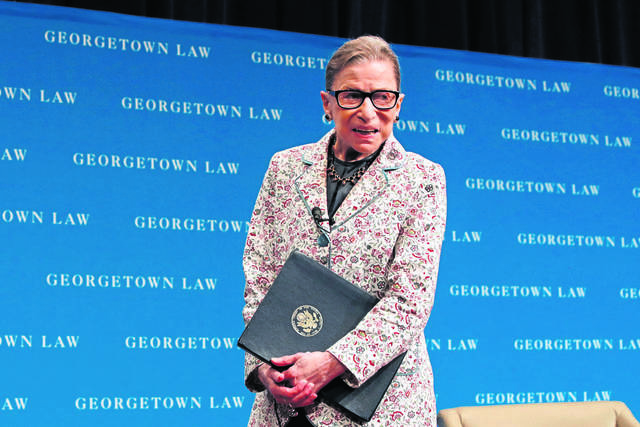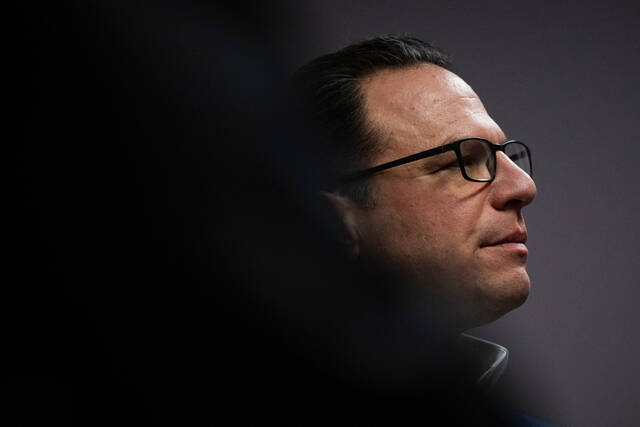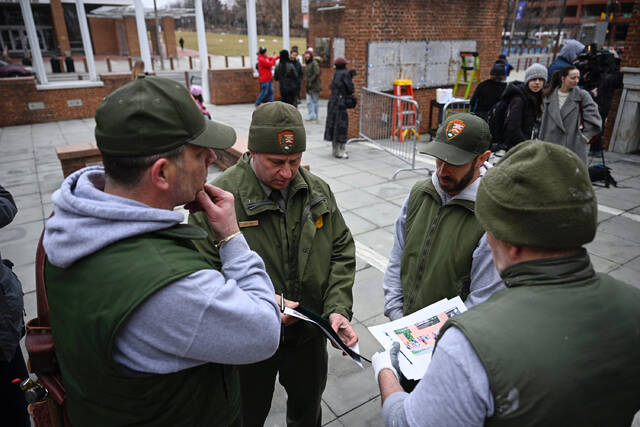U.S. Sen. Pat Toomey has not said whether it’s critical to let the American people have the chance to “weigh in and select a new president” before filling the Supreme Court seat left vacant by the death of Ruth Bader Ginsburg.
That’s what Toomey, a Lehigh Valley Republican, described as “the best approach” four years ago — when he explained in statements, editorials and interviews why he opposed moving forward with then-President Obama’s nomination of Merrick Garland after Justice Antonin Scalia’s death several months before the 2016 election.
“The balance of the Supreme Court is at stake, and we have an election right around the corner,” Toomey said in March 2016. “With lifetime tenure, the next justice will determine the Court’s balance for a generation. In that light, I believe it is sensible to allow the American people to participate in the choice of Justice Scalia’s successor less than seven months from now.”
Now, less than seven weeks before the Nov. 3 election, President Trump and GOP leaders want to confirm a Trump-backed Supreme Court pick before America decides whether to reelect Trump. The attempt runs counter to GOP rhetoric from 2016, when the Republican-controlled Senate refused to hold confirmation hearings on Garland because it was a presidential election year.
“It is disturbing and hypocritical that Republican senators would attempt to fill this vacancy now while Americans across the country have already begun casting their ballots in this presidential election, especially when they were unwilling to even grant a hearing to President Obama’s nominee to the court in early 2016,” U.S. Sen. Bob Casey, D-Scranton, said Monday by email.
Republican calls to move forward with the nomination and confirmation echo Democratic talking points from 2016, when Obama and Hillary Clinton called for moving forward with Garland’s confirmation, arguing that an election year should not be reason to stop a president and the Senate from fulfilling their constitutional duty to fill a Supreme Court vacancy.
A spokesperson for Toomey, who was in Washington for the Senate session, indicated Toomey was unavailable to comment on the issue Monday but may be making a public statement soon. Toomey has previously touted efforts to work “across the aisle” with Casey and other Democrats in filling seats on the federal bench in Pennsylvania.
it is wise to give the American people a more direct voice in the selection and confirmation of the next justice. #SCOTUS
— Senator Pat Toomey (@SenToomey) March 16, 2016
Ginsburg died Friday of pancreatic cancer.
Soon after issuing condolences, Trump and other GOP leaders, including Senate Majority Leader Mitch McConnell and Texas Sen. Ted Cruz, immediately called over the weekend for an expedited nomination and confirmation process — an aboutface from arguments they made against Garland’s confirmation process.
“Yeah, that is hypocritical. Yes, the voters realize that. But conservatives are making the calculation that the long-term benefit of getting a sixth member on the court is well worth the cost, and so they’re going to take the ding for being outwardly hypocritical,” said Dennis Plane, professor of politics at Juniata College in Huntingdon.
“If he’s successful, this would be Trump’s third Supreme Court pick – which is unusual for the first term of any president .. and the balance of the court shifts decidedly to the right,” Plane said. “It upsets the race because, now, the calculation seems a little different.”
Casey pointed out the future of the Affordable Care Act, the 2010 federal health care law enacted under the Obama administration, could be at stake.
Bruce Ledewitz, Duquesne University law professor and constitutional expert, warns that rushing the pick would go beyond politics and threaten the integrity of the courts and nomination process. Personally, Ledewitz said he is pro-life, pro-religious freedom and wants to see the Roe v. Wade ruling that legalized abortion overturned.
“I probably agree with the politics of the person that he wants to have on the court — but I hate lying. You cannot have constitutional government if norms don’t matter,” Ledewitz said. “They didn’t have to set this norm. … I didn’t agree with it at the time. But they set the precedent. And now they should live according to their own rules.”
Typically, it takes more than two months from a nomination decision until the final Senate vote, with a median of 71 days, the Congressional Research Service reports. Experts told the Tribune-Review that, while it’s unlikely to be finalized prior to Nov. 3, GOP leaders could opt to do so during the lame-duck session between the election and start of the 2021 presidential term if Trump loses re-election.
Four Republicans could block the move. Trump already has criticized Republican Sens. Susan Collins of Maine and Lisa Murkowski of Alaska for opposing a Senate vote before elections.
Trump said he is planning to name his pick by Friday or Saturday, ahead of the first presidential election debate. Ginsburg is set be buried next week in a private service at Arlington National Cemetery.
Casey and Toomey on Saturday issued statements of condolences and respect and appreciation for Ginsburg.
Toomey lauded Ginsburg as “a trailblazer in the legal profession.”
“While I usually disagreed with her legal and political views, she proved time and again that it is possible to disagree with someone without being disagreeable,” Toomey said. “Simply put, Justice Ginsburg left an indelible mark that will resonate for generations.”








